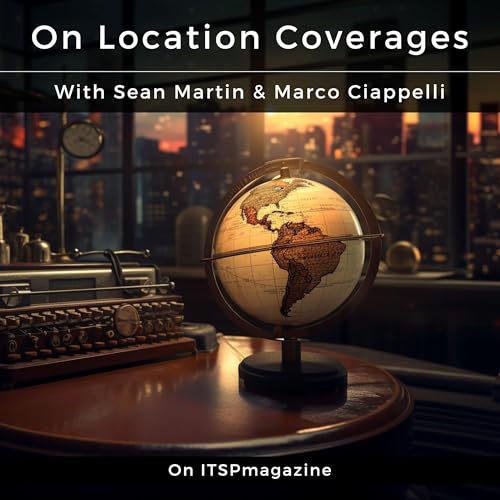What Security Congress Reveals About the State of CybersecurityThis discussion focuses on what ISC2 Security Congress represents for practitioners, leaders, and organizations navigating constant technological change. Jon France, Chief Information Security Officer at ISC2, shares how the event brings together thousands of cybersecurity practitioners, certification holders, chapter leaders, and future professionals to exchange ideas on the issues shaping the field today. Themes That Stand OutAI remains a central point of attention. France notes that organizations are grappling not only with adoption but with the shift in speed it introduces. Sessions highlight how analysts are beginning to work alongside automated systems that sift through massive data sets and surface early indicators of compromise. Rather than replacing entry-level roles, AI changes how they operate and accelerates the decision-making path. Quantum computing receives a growing share of focus as well. Attendees hear about timelines, standards emerging from NIST, and what preparedness looks like as cryptographic models shift. Identity-based attacks and authorization failures also surface throughout the program. With machine-driven compromises becoming easier to scale, the community explores new defenses, stronger controls, and the practical realities of machine-to-machine trust. Operational technology, zero trust, and machine-speed threats create additional urgency around modernizing security operations centers and rethinking human-to-machine workflows. A Place for Every Stage of the CareerFrance describes Security Congress as a cross-section of the profession: entry-level newcomers, certification candidates, hands-on practitioners, and CISOs who attend for leadership development. Workshops explore communication, business alignment, and critical thinking skills that help professionals grow beyond technical execution and into more strategic responsibilities. Looking Ahead to the Next CongressThe next ISC2 Security Congress will be held in October in the Denver/Aurora area. France expects AI and quantum to remain key themes, along with contributions shaped by the call-for-papers process. What keeps the event relevant each year is the mix of education, networking, community stories, and real-world problem-solving that attendees bring with them.The ISC2 Security Congress 2025 is a hybrid event taking place from October 28 to 30, 2025 Coverage provided by ITSPmagazineGUEST:Jon France, Chief Information Security Officer at ISC2 | On LinkedIn: https://www.linkedin.com/in/jonfrance/HOST:Sean Martin, Co-Founder, ITSPmagazine and Studio C60 | Website: https://www.seanmartin.comFollow our ISC2 Security Congress coverage: https://www.itspmagazine.com/cybersecurity-technology-society-events/isc2-security-congress-2025Catch all of our event coverage: https://www.itspmagazine.com/technology-and-cybersecurity-conference-coverageISC2 Security Congress: https://www.isc2.orgNIST Post-Quantum Cryptography Standards: https://csrc.nist.gov/projects/post-quantum-cryptographyISC2 Chapters: https://www.isc2.org/chaptersWant to share an Event Briefing as part of our event coverage? Learn More 👉 https://itspm.ag/evtcovbrfWant Sean and Marco to be part of your event or conference? Let Us Know 👉 https://www.studioc60.com/performance#ideasKEYWORDS: cybersecurity, ai security, isc2 congress, quantum computing, identity attacks, zero trust, soc automation, cyber jobs, cyber careers, cyber leadership, security operations, threat intelligence, machine speed, authentication, authorization, sean martin, jon france, identity, soc, certification, leadership, event coverage, on location, conference Hosted by Simplecast, an AdsWizz company. See pcm.adswizz.com for information about our collection and use of personal data for advertising.
Voir plus
Voir moins
 26 min
26 min 27 min
27 min 30 min
30 min 27 min
27 min 28 min
28 min 25 min
25 min 24 min
24 min 22 min
22 min
